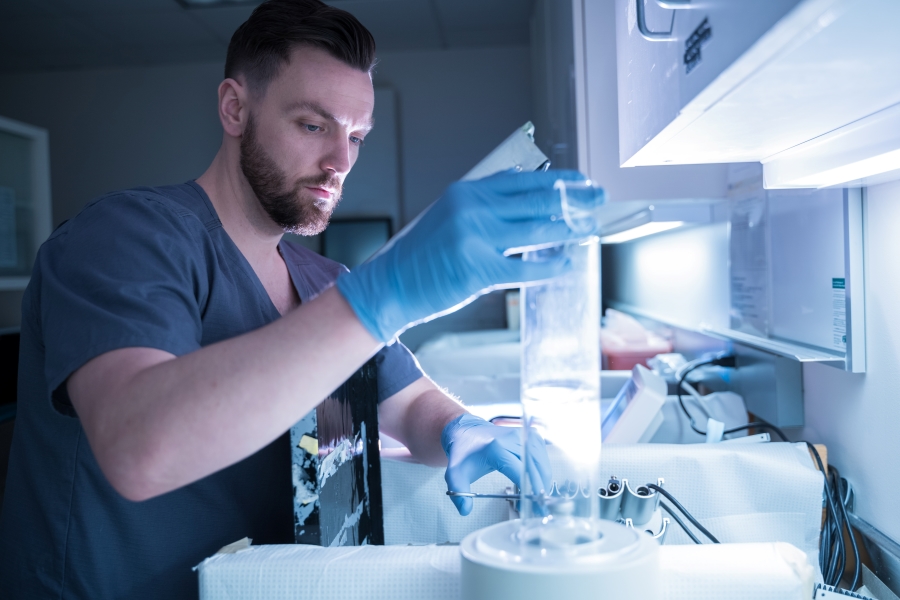Nuclear Medicine Radioisotopes Market: Introduction
The increasing prevalence of chronic diseases such as cancer & thyroid is anticipated to drive market growth Radiation is used in nuclear medicine to diagnose illnesses or to offer information about how a person’s individual organs are working. The majority of the time, doctors use the data to quickly diagnose the patient’s disease. It is simple to image the thyroid, bones, heart, liver, and many other organs to identify functional issues. Radiation can occasionally be used to treat tumours or sick organs. Radioactive tracers have been used in medicine in a significant way by five Nobel laureates.
Iodine-131 was initially used to identify and subsequently treat thyroid disorders when nuclear medicine was first created in the 1950s by doctors with a concentration on the endocrine system. As dual PET/CT (positron emission tomography with computed tomography) procedures have grown in popularity and increased the importance of accelerators in radioisotope production, specialists from the radiology field have also recently joined the field. However, it is impossible to successfully generate the key radioisotopes, like Tc-99m, without reactors.
Nuclear Medicine Radioisotopes Market: Overview
The global nuclear medicine Radioisotopes market size was estimated at USD 8.1 billion in 2021 and is expected to expand at a compound annual growth rate of (CAGR) 13.0% from 2022 to 2030.
The market is expanding as a result of a strong product pipeline and supportive government programmes to expand access to nuclear medicine. Currently, a number of products are undergoing clinical trials, including betalutin, omburtamab, yttrium-90 microspheres, PNT2003, and 177Lu-PNT2002. The SARS-CoV-2 virus has had a minor negative influence on the nuclear medicine sector. Given its criticality, operating reactors has often been categorised as an essential service. Therefore, during the SARS-CoV-2 shutdown, nuclear reactors were not shut down. For instance, South Africa’s SAFARI-1 reactor continued to operate during the lockdown that was imposed on the nation after March 2020 per Section 71 of the Labour Act 66 of 1995.
Key Benefits for Global Nuclear Medicine Market Reports –
- In-depth historical and forecast analysis is included in the global market study.
- Market introduction, market summary, global market revenue (in US dollars), market drivers, market restraints, market opportunities, competitive analysis, and regional and national level are all covered in detail in the global market research report.
- The global market study aids in locating market possibilities.
- A thorough analysis of the competitive environment and developing trends is included in the global market study.
Request a sample copy of the report – https://healthcaremarketreports.com/sample-request/nuclear-medicine-radioisotopes-market/35319/
Nuclear Medicine Radioisotopes Market: Segmentation
key players:
- Agfa-Gevaert Group
- Braco
- Cardiarc
- Cardinal Health
- CMR Naviscan (Gamma Medica Inc.)
- Curium
- Digirad
- GE Healthcare
- Nordion (Canada)
- NTP Radioisotopes SOC
- Positron
- Segami
- Siemens Healthcare
By Type:
- Thallium-201 (Tl-201)
- Iodine (I-123)
- Fluorine-18
- Rubidium-82 (Rb-82)
- Other
By Application:
- Tumor
- Heart Disease
- Lymphoma
- Thyroid Gland
- Other
By Regions:
- North America
- Europe
- China
- Japan
- Middle East and Africa
- South America
- India
- South Korea
- Southeast Asia
- Others
COVID-19 Impact Analysis:
Whether in the pandemic’s planning, reaction, or recovery phases, the COVID-19 pandemic has posed substantial obstacles to healthcare systems. This has mostly been handled by drastically cutting back on in- and outpatient disease treatment services and putting in place infection prevention and control measures. The total study findings demonstrated that operations have been negatively impacted by nuclear medicine services provided globally. In terms of employee health, 15% of respondents said their departments had COVID-19 infections. The number of nuclear studies, nuclear cardiac imaging, and oncology PET/CT decreased in March and April 2020 as a result of the rise in COVID-19 cases and deaths, as reported by the Centers for Disease Control and Prevention, according to The Impact of COVID-19 on Nuclear Medicine Operations Including Cardiovascular Manifestations in the USA”” published in ScienceDirect Journal in June 2021. (CDC). According to the analysis, operations increased between June 2020 and February 2021 as the number of COVID-19 cases decreased.
FAQs:
- What is the driving factor for the growth of the Nuclear Medicine Radioisotopes Market?
- How will the COVID-19 pandemic impact the demand and consumption of the Nuclear Medicine Radioisotopes Market?
- What is the major application area of the Nuclear Medicine Radioisotopes Market?
- Who are the Medicinal Magnesium Hydroxide Paste manufacturers across the globe?
- Which geographical location is dominant in the Nuclear Medicine Radioisotopes Market?
- Which are the top industry players in the Nuclear Medicine Radioisotopes Market?
Get more details on this report:- https://healthcaremarketreports.com/reports/nuclear-medicine-radioisotopes-market/35319/
About Us:
The healthcare industry is surely facing disruptions with global economies giving high importance to individual health. In this scenario, we expect our clients to get deep insights to power their innovations in the right direction. We have been keeping a close watch on the changes and modifications happening in the healthcare domain. As per our understanding, these alterations are active and unexampled.
Contact Us:
Healthcare Market Reports
sales@healthcaremarketreports.com
+1(929)-450-2887


